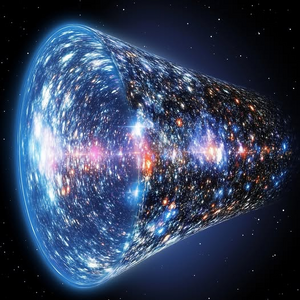
James Webb confirms there's something seriously wrong with our understanding of the universe:
In a striking discovery, James Webb and Hubble space telescopes have confirmed that the universe is expanding at varying rates depending on the observation point, which challenges our current understanding of the cosmos.
This discrepancy is known as the Hubble Tension. It was first observed by the Hubble Space Telescope in 2019 and further confirmed by the James Webb Space Telescope in 2023, with recent combined efforts by both telescopes now eliminating any doubts about measurement errors.
The Hubble Tension arises from a conflict between two ways of measuring the universe's expansion rate.
One method looks at the early universe, relying on the cosmic microwave background—the ancient afterglow of the Big Bang—to calculate the expected expansion.
The other method focuses on the more recent universe, utilizing telescopes to observe stars and galaxies. The problem is, these two methods are yielding vastly different results. It's as if the universe has subtly changed its rules between its infancy and the present day. By observing over a thousand Cepheid stars in galaxies up to 130 million light-years away, the researchers have confirmed the reliability of Hubble's measurements across the cosmic distance ladder, thus ruling out measurement error as a cause for the Hubble Tension and suggesting a profound mystery at the core of our understanding of the universe's expansion.
The study was published in Astrophysical Journal Letters.
Learn more:
https://iopscience.iop.org/article/10.3847/2041-8213/ad1ddd




















































